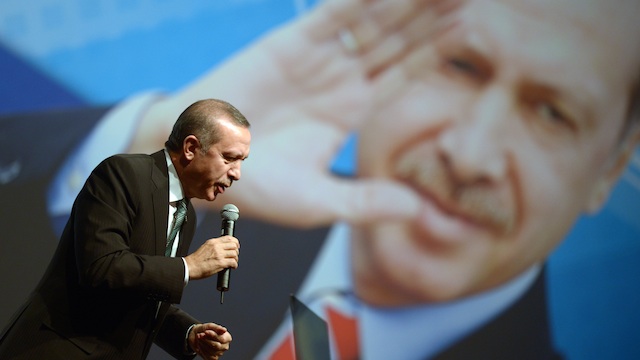SUMMARY
This is AI generated summarization, which may have errors. For context, always refer to the full article.

ANKARA, Turkey – Turkish Prime Minister Recep Tayyip Erdogan on Wednesday, April 23, offered condolences over the massacre of Armenians almost 100 years ago, describing the events of World War I as “our shared pain”.
Erdogan’s statement, on the eve of the 99th anniversary of the start of mass deportations of Armenians in 1915, is the first such overt comment by a Turkish leader over the killings, considered by many as the first genocide of the 20th century.
He acknowledged that the events of 1915 had “inhumane consequences” but also said it was “inadmissable” for the events to be used as an excuse today for hostility against Turkey.
“The incidents of the First World War are our shared pain,” said Erdogan in what Turkish media described as an unexpected statement that was issued in several languages including Armenian.
Armenia has been trying to get Turkey to recognise the killings of up to 1.5 million people under the Ottoman empire as genocide.
But Turkey says 500,000 died of fighting and starvation during World War I and categorically rejects the term “genocide”.
“Millions of people of all religions and ethnicities lost their lives in the First World War,” Erdogan said.
“Having experienced events which had inhumane consequences — such as relocation — during the First World War, should not prevent Turks and Armenians from establishing compassion and mutually humane attitudes among towards one another.
‘Remember the losses’
“It is our hope and belief that the peoples of an ancient and unique geography, who share similar customs and manners will be able to talk to each other about the past with maturity and to remember together their losses in a decent manner.
“And it is with this hope and belief that we wish that the Armenians who lost their lives in the context of the early 20th century rest in peace, and we convey our condolences to their grandchildren,” he added.
The arrest and massacre of 2,000 Armenian leaders began in Istanbul on April 24, 1915, and in less than a year hundreds of thousands were forcibly displaced, their possessions seized and many killed.
A century on, the killings still fuel bitter controversy, often upsetting relations between Turkey and the West.
But there have been gradual signs of change in Turkey, with Foreign Minister Ahmet Davutoglu last year calling the events of 1915-16 a “mistake” and an “inhuman act” during a trip to the Armenian capital Yerevan.
“It is indisputable that the last years of the Ottoman Empire were a difficult period, full of suffering for Turkish, Kurdish, Arab, Armenian and millions of other Ottoman citizens, regardless of their religion or ethnic origin,” Erdogan’s statement said.
“Nevertheless, using the events of 1915 as an excuse for hostility against Turkey and turning this issue into a matter of political conflict is inadmissible,” he added. – Rappler.com
Add a comment
How does this make you feel?
There are no comments yet. Add your comment to start the conversation.